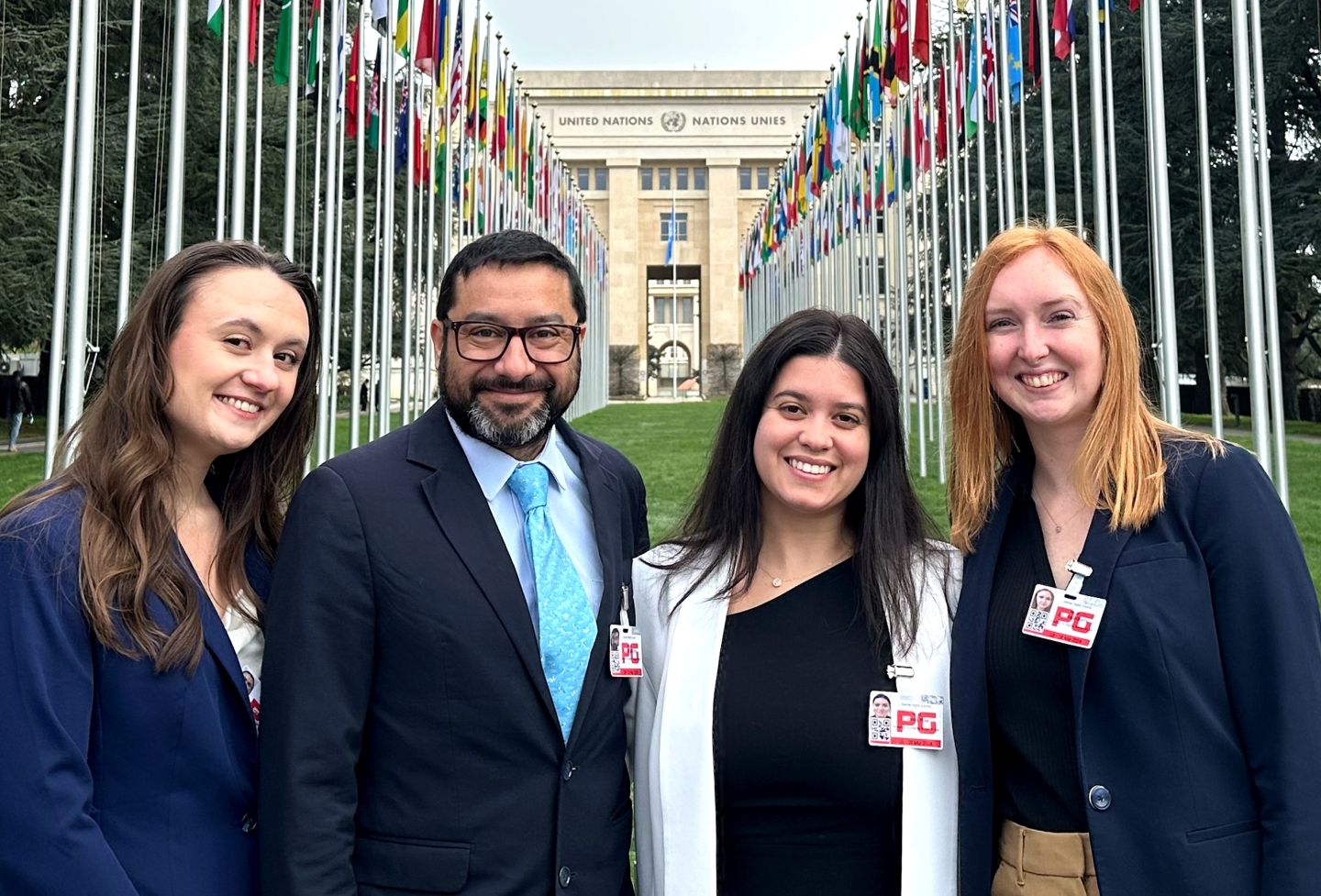A new student organization at the University of Virginia School of Law is supporting incarcerated people, and providing students with a better understanding of the correctional practices behind prison walls.
The Virginia Law in Prison Project, which began two years ago, connects students with pro bono experiences and opportunities to learn about correctional practices and policy.
Students in the project have recently visited the Augusta Correctional Center to observe conditions and speak to administrators, heard from speakers such as former UVA Law professor Andrew Block, now the director of the Virginia Department of Juvenile Justice, and participated in a prison pen-pal exchange as part of the National Lawyers Guild's Student Week Against Mass Incarceration.
"I've really appreciated hearing the perspective of someone actually in prison, especially as it pertains to his views about how best to reform our broken system," said third-year law student Claire Mitchell, who wrote to one of the 60 prisoners with whom law students corresponded.
The project was founded by Nina Goepfert, a third-year law student whose interest in mass incarceration began while majoring in politics and African-American studies at Oberlin College in Ohio, where she co-founded the Prison Justice Project.
While that project was focused on educating prisoners through classes taught by Oberlin professors, the project at Virginia Law is about educating future lawyers. In that regard, seeing and understanding how prisoners live is important, Goepfert said.
"I think a lot of law students ultimately will practice law that is related to incarceration," she said. "Yet these facilities are so far away from our visual and personal experience."
The project is co-chaired by second-year law student Maggie Birkel and third-year law student Tex Pasley.
Pasley will work for No Exceptions Prison Collective in Tennessee after he graduates. The organization focuses on sentencing reform, improving internal conditions in prisons and promoting parole for individuals who no longer present a threat to society.
"Obviously everyone in prison has been convicted of a crime, but I think that it's important to recognize their humanity," Pasley said. "I think that's difficult to do unless you have a chance to visit and engage with them on a personal level."
The students said the project has benefited from its connections to the Law School's Program in Law and Public Service, to which many of the students in the project belong. The program admits about 25 students a year, and is designed to offer a select group the opportunity to receive intensive training that will prepare them for a career in public service.
Goepfert first got the word out about her new student group through the program's listserv. Pasley said students in the program routinely network and share ideas about what they are working on.
"At a basic level, the program provides a community of people that benefit from taking a different approach to law school," Pasley said.
Founded in 1819, the University of Virginia School of Law is the second-oldest continuously operating law school in the nation. Consistently ranked among the top law schools, Virginia is a world-renowned training ground for distinguished lawyers and public servants, instilling in them a commitment to leadership, integrity and community service.


